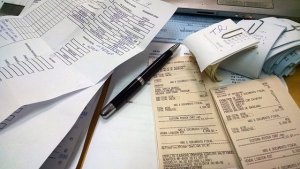
The following ‘top ten’ list is designed to help make you aware of the most common items/actions that could trigger or increase the likelihood of a possible sales tax audit.
- Filing sales tax returns reporting zero use tax. States can run queries to identify companies that do not report any use tax. With the national marketplace and Internet companies, there are many sellers that may not be registered to collect sales and use tax in your home state. Therefore, states expect some level of use tax reporting periodically by registrants.
- Prior audits in which you owed taxes. If you have been audited previously by a state and owed a significant amount, that state will generally come back for a re-audit to determine whether your systems have improved. Some states with data warehouses automatically compare annual taxes reported to annual amounts calculated in audits. If the reporting ratios have not changed to match the ratios from the audit period, an audit may be initiated.
- Failure to be registered in state where you already have another tax account. More states now have data warehouses that allow them to compare income tax and withholding account lists to sales tax registration lists.
- Asking for a refund. While you may have legitimately paid the tax in error, states have fiscal constraints, so refunds often trigger audits to try to reduce or eliminate the refund.
- Customer/supplier audits. If a customer is undergoing a sales tax audit and your invoice is selected, the customer or the auditor may contact you to determine whether you have an exemption certificate on file. If you reply that you do not have a properly completed exemption certificate on file and it was an error, the auditor may send a referral to his or her audit selectors. If this happens on multiple occasions, then you may be selected for an audit. If a supplier is under audit and the auditor sees an exemption certificate provided for something they think is clearly taxable, he or she may flag you for audit.
- Industry issues/comparisons. If the Department of Revenue has audited other companies in your industry and found significant taxes, it may utilize its data warehouses to identify companies with the same NAICS numbers. It may also compare your percentage of taxable sales to other companies in your industry.
- Performing services in other states. Many state auditors are looking closer at out-of-state vendors when doing audits of in-state companies. If your invoices document in-state presence or there are line items for out-of-pocket costs (hotels, meals, car rentals), auditors will copy invoices and forward to their nexus units.
- Failure to charge correct tax on freight or fuel surcharges. The taxation of freight and other invoice charges may vary by state. Some vendors in states that do not tax freight may have accounting systems set up based on the home state rules. Therefore, if they are registered in other states, the tax calculation may not be computed properly.
- Third-party referrals. People always talk about “snitch letters.” While this may not be as applicable now, there are parties out there using whistleblowing or false-claims laws to try to generate a finder’s fee.
- State and federal government information sharing. Many states receive customs reports from the federal government. If the purchasers do not report use tax on a business or even an individual level, the state will trigger audits. If a home state does audit a company that sells high-ticket items, it may share that data on sales outside the home state. Departments of Revenue may match registration for titled items (motor vehicles, airplane, boats, etc.) to determine whether improper exemptions have been claimed.




















Add comment